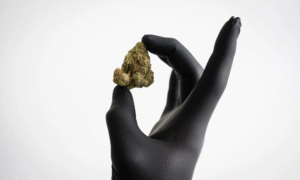Did Oregon Let Curaleaf Skate?

The lack of proportionality in penalties and consistency in outcomes is disturbing
Last summer, the Massachusetts based retailer Curaleaf mistakenly mixed-up THC with CBD at a bottling plant in Portland. Approximately 1,500 mislabeled bottles containing what the Oregonian describes as a “jumbo” dose of THC were shipped under the brand name Select and sold as containing only CBD. Although many of the bottles were recalled at the behest of state regulators, some were purchased and ingested, leading to approximately a dozen lawsuits.
The Oregon Liquor & Cannabis Commission (“OLCC”) initially sought to impose a 70-day suspension and a $200,000 fine on Curaleaf. This was the maximum allowable financial penalty under the law. The OLCC has now agreed that Curaleaf will face only a 23-day suspension and $130,000 fine and Curaleaf can reduce the suspension to only 12 days if it pays an additional $2,750. Meanwhile, just a few days ago, the OLCC issued a news release “signaling a desire to sideline marijuana licensees unable to follow common business practices.”
Preceding this THC/CBD mixup, Curaleaf was hit by the OLCC with a $110,000 “dishonest conduct” penalty related to claims about vaping products. And in July 2020, Curaleaf found itself defending a class action lawsuit after the FDA issued a warning for “illegally selling” CBD products and making health claims about those products.
This litany may sound like I have something against Curaleaf. I don’t. I do question why the OLCC appears to treat large cannabis corporations different than “mom-and-pop” shops. For example, everyone in Oregon cannabis knows Nectar, the state’s largest operator. A few years ago, Nectar was hit a barrage of violations ranging from Category I, where the presumptive penalty is license cancellation, to Category III, where the presumptive penalty is a fine and short suspension. The OLCC settled these violations for a seven-day suspension and fines totaling less than $50,000.
Now consider the case of Luminous Botanicals, reported on by Sophie Peel of the Willamette Week in April 2021. In that case, the licensee allegedly mislabeled a tincture and that the labels were not properly affixed and could fall off. The OLCC imposed a $100,000 penalty.
Unlike Curaleaf, nothing suggests that the Luminous was a repeat offender. Unlike Curaleaf, the contents of the products delivered to consumers were exactly as described. No one became ill, no lawsuits were filed and the labeling issue was not intentional. A $100,000 fine to a mom-and-pop outfit is a death knell in this competitive industry and tantamount to a license cancellation. The lack of proportionality in penalties and consistency in outcomes is disturbing.
What gives OLCC?
____
For related OLCC posts, check out the following:
- Oregon Cannabis: OLCC is Talking Tough
- Oregon Cannabis: What to Do If You Receive an OLCC Notice of Proposed License Cancellation or Other “Charging Document”
- Oregon Cannabis: Why Won’t OLCC Treat Settlement Negotiations as Inadmissible?
- Oregon Cannabis: New Rules (Part 4) – Repeat Violators Beware!
- Oregon Cannabis: New Rules, Part 5 – License Cancellation Criteria
- Oregon Marijuana: OLCC to Adopt “Fix it or Ticket” Approach for Some Rule Violations
For related Curaleaf posts, check out the following:
- Cannabis Litigation: Curaleaf Wins Dismissal of Securities Class Action Lawsuit
- Curaleaf Meets the TCPA
- Cannabis Company Disasters: Learning from the Brutal Curaleaf Sequence
- Oregon Cannabis Litigation: Cura Hit with $10 Million Class Action
Source: Harris Bricken




























